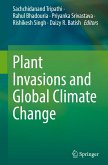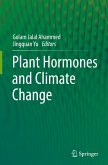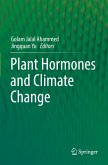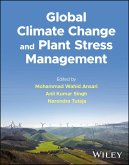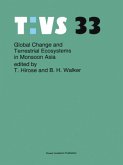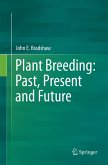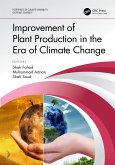This edited book provides an ensemble of contemporary research related to the challenges, impacts and precautionary measures for tackling plant invasions in the context of changing climate in different regions of the world.
In current scenario, plant invasions are expansive and significant component of anthropogenic global climate change. Temperature variations may compromise the adaptability of native species, thereby stressing them and decreasing the resistance potential of natural communities to invasion. Invasive alien species under the current scenario have been suggested as a major threat to biodiversity. It is also predicted that increasing disturbances or extreme events such as fires, floods, cyclones, storms, heat-waves, droughts, etc. will be direct consequences of changing climate supporting the invasive alien species. A comprehensive understanding of the interaction between species invasion and climate change will be supplemental in forecasting future shifts in biodiversity. Further, different predictive models indicate a plausible increase in the abundance and impact of invasive alien species which may have direct implications for future research and target-oriented policy and decision making. However, these predictions become more complicated considering the complexity of interactions between the impacts of changing climate with other components of global change (changes in land use, nitrogen deposition, etc.) which are affecting the distribution of native plant species, ecosystem dynamics as well as non-native/invasive species.
This book will be suitable for students (undergraduate and postgraduates) of agriculture, forestry, ecology, soil science, and environmental sciences; teachers, researchers, and climate change scientists in academic and research institutions. It will also be applicable to environmental management agencies, government agencies and policy makers.
In current scenario, plant invasions are expansive and significant component of anthropogenic global climate change. Temperature variations may compromise the adaptability of native species, thereby stressing them and decreasing the resistance potential of natural communities to invasion. Invasive alien species under the current scenario have been suggested as a major threat to biodiversity. It is also predicted that increasing disturbances or extreme events such as fires, floods, cyclones, storms, heat-waves, droughts, etc. will be direct consequences of changing climate supporting the invasive alien species. A comprehensive understanding of the interaction between species invasion and climate change will be supplemental in forecasting future shifts in biodiversity. Further, different predictive models indicate a plausible increase in the abundance and impact of invasive alien species which may have direct implications for future research and target-oriented policy and decision making. However, these predictions become more complicated considering the complexity of interactions between the impacts of changing climate with other components of global change (changes in land use, nitrogen deposition, etc.) which are affecting the distribution of native plant species, ecosystem dynamics as well as non-native/invasive species.
This book will be suitable for students (undergraduate and postgraduates) of agriculture, forestry, ecology, soil science, and environmental sciences; teachers, researchers, and climate change scientists in academic and research institutions. It will also be applicable to environmental management agencies, government agencies and policy makers.


